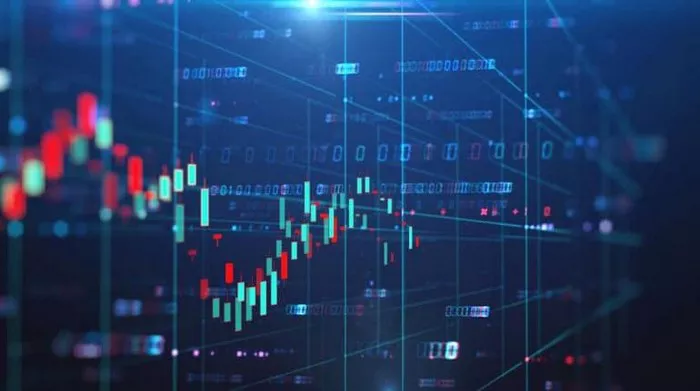In the intricate landscape of agricultural commodities, corn stands as a cornerstone, playing a pivotal role in global food security, biofuel production, and various industrial applications. As we navigate the complexities of the present, it becomes imperative to gaze into the crystal ball and discern the future trajectory of corn futures. In this article, we will delve into the multifaceted factors influencing corn’s future, exploring market dynamics, technological advancements, and geopolitical shifts that will shape the landscape of corn trading.
The Evolving Dynamics of Corn Futures
The corn futures market is inherently dynamic, influenced by a myriad of factors that extend beyond the agricultural realm. To understand the future of corn futures, we must first dissect the present market dynamics. The demand-supply equilibrium, weather patterns, and geopolitical events intricately interplay to determine corn prices. Moreover, the integration of technology and data analytics has introduced a new dimension to futures trading, revolutionizing how stakeholders perceive and respond to market trends.
Technological Innovations and Data Analytics in Corn Futures
In recent years, technological advancements have transformed the landscape of commodities trading, and corn futures are no exception. The integration of artificial intelligence, machine learning, and data analytics has empowered market participants with unprecedented insights. Predictive modeling and algorithmic trading have become instrumental in forecasting price trends, providing traders with a competitive edge. As we navigate the future of corn futures, the role of technology is poised to expand, enabling more accurate predictions and enhanced risk management strategies.
Environmental and Sustainability Factors
The future of corn futures is intricately linked to environmental and sustainability considerations. With the global spotlight on climate change and sustainable agricultural practices, market dynamics are evolving. The demand for ethically sourced and environmentally sustainable products is on the rise, prompting a shift in consumer behavior. In this context, the future of corn futures may witness a paradigmatic shift, with increased emphasis on eco-friendly cultivation methods, reducing the environmental footprint of corn production.
See Also: What is the daily limit on corn futures?
Global Trade Dynamics
Geopolitical shifts and global trade dynamics have always been influential factors in commodities futures, and corn is no exception. As nations reassess trade policies and alliances, the future of corn futures is likely to be shaped by these geopolitical developments. Trade tensions, tariff impositions, and shifts in global economic power can significantly impact corn prices. Keeping a vigilant eye on these geopolitical factors will be crucial for market participants seeking to navigate the ever-changing landscape of corn futures.
Policy Interventions and Government Support
Government policies and interventions play a pivotal role in shaping the trajectory of corn futures. Subsidies, trade agreements, and agricultural policies directly impact corn production, influencing supply and demand dynamics. The future of corn futures will be intricately tied to government support and regulatory frameworks. As policymakers address issues such as food security, biofuel mandates, and environmental sustainability, the corn futures market will respond accordingly, presenting both challenges and opportunities for market participants.
Biotechnological Advancements in Corn Cultivation
Biotechnological innovations have been a driving force in modern agriculture, and the future of corn futures will likely witness further advancements in this realm. Genetically modified (GM) crops, precision farming techniques, and biotechnology-driven yield improvements are shaping the landscape of corn cultivation. As these technologies continue to evolve, their impact on corn production, quality, and resistance to pests and diseases will influence futures prices. Stakeholders in the corn futures market must stay abreast of these biotechnological developments to make informed decisions.
Consumer Trends and Dietary Shifts
Consumer preferences and dietary trends have a direct bearing on the future of corn futures. As the global population continues to grow, dietary habits are undergoing transformations. The demand for corn-based products, including animal feed, processed foods, and ethanol, is likely to experience fluctuations based on changing consumer preferences. The rise of plant-based diets and alternative protein sources may also impact the demand for corn in various applications, influencing futures prices accordingly.
Weather Volatility and Climate Change
The vulnerability of corn crops to weather conditions is a perennial concern for futures traders. Climate change introduces an additional layer of uncertainty, with altered precipitation patterns, temperature extremes, and the increased frequency of extreme weather events. The future of corn futures will be influenced by the industry’s ability to adapt to these changing climate conditions. Robust risk management strategies that account for weather volatility will become essential for market participants to navigate the uncertainties posed by climate change.
Infrastructure Development and Logistics
The efficiency of transportation and logistics infrastructure is a critical factor in the corn futures market. As global demand for corn continues to rise, ensuring seamless transportation and storage becomes imperative. Infrastructure developments, including upgrades to transportation networks and storage facilities, will impact the cost structure of corn futures. Market participants should monitor these developments closely, as they can influence the overall competitiveness and pricing dynamics of corn futures.
Conclusion
In conclusion, the future of corn futures is a tapestry woven with the threads of technological advancements, environmental sustainability, geopolitical shifts, and consumer trends. The integration of advanced technologies, coupled with a heightened focus on sustainability, is reshaping the landscape of corn cultivation and trading. As stakeholders navigate the complex web of factors influencing corn futures, the ability to adapt to changing market dynamics and leverage emerging opportunities will be crucial for success. With a keen eye on the ever-evolving market trends, participants can position themselves strategically to thrive in the future landscape of corn futures trading.


